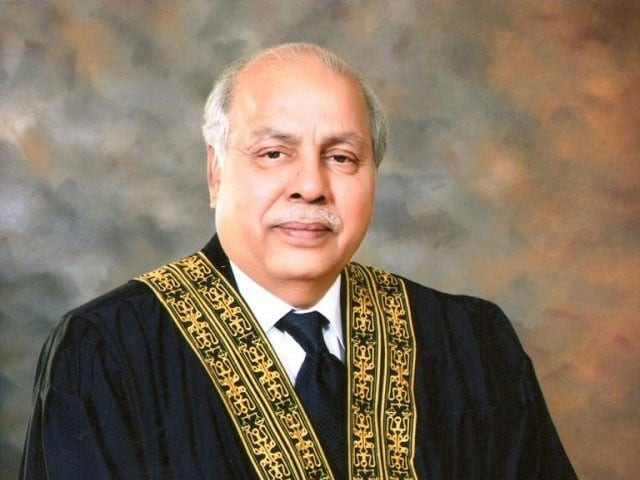During Gulzar’s tenure: JCP meetings becoming more interactive, open
Superior bars representatives are now also being consulted before referring names to the JCP

There has been more openness in the proceedings of the Judicial Commission of Pakistan (JCP) during the tenure of incumbent Chief Justice of Pakistan Gulzar Ahmed, who is also the chairman of the JCP.
The JCP is a constitutional body which has a key role in appointing judges to the superior courts. The forum also confirms services of the additional judges of high courts.
The five senior-most judges of the Supreme Court, including the chief justice of Pakistan, a retired SC judge, the Attorney General for Pakistan (AGP), the federal law minister and a representative of the Pakistan Bar Council (PBC) are permanent members of the commission.
Under the JCP rules 2010, the commission proceedings are conducted in-camera.
For the last one decade, representatives of the superior bars had been complaining that non judicial JCP members had no opportunity to give an effective input on the nominee judges in the meetings.
They even alleged that the JCP members, belonging to the judiciary, took all decisions unilaterally even before the commission’s meetings. Due to this alleged practice, the commission’s proceedings were becoming meaningless.
Some non-judicial members – including the PBC representative, the AGP and the law minister – had even boycotted the JCP's meetings during the tenure of former CJ Iftikhar Muhammad Chaudhry.
However, several members of the JCP have now confirmed that the incumbent JCP chairman has brought more openness to the commission’s meetings in which detailed discussions take place now.
Every member is being allowed to express his opinion freely on any issue. Even member judges are giving dissenting opinions on the nominees. Recently, two JCP members have disagreed with the majority judges’ opinion regarding elevation of a judge to the apex court.
Lawyers are also appreciating detailed discussions on the credentials of the nominees. Superior bars representatives are also being consulted before referring names to the JCP.
Some lawyers believe that the presence of Supreme Court judge Qazi Faez Isa in the commission is also significant as he openly expresses his opinion about the nominees.
They hope that soon the JCP proceedings will be conducted before the public and the nominees will be summoned before the commission for their interviews and to know their views on legal issues.
In April, the JCP had refused to entertain an unsigned report of intelligence agencies in the process of appointment/confirmation of superior court judges. The commission had also resolved that it would not consider the agencies’ reports that lack supportive material to substantiate their findings.
In the meeting summoned to discuss confirmation of the services of an additional Lahore High Court (LHC) judge Shakilur Rehman, the commission members had deliberated on utilization of spy agencies’ reports in deciding new appointments or confirmations.
A majority of the JCP members, except AGP Khalid Javed Khan and Federal Minister for Law Dr Farogh Naseem, had agreed that the commission would not consider the agencies’ reports on any nominee until they are signed by an official.
It was also resolved that supportive material should also be placed along with these reports to substantiate the findings.
It was agreed that the government representatives – the AGP and the law minister – might summon agencies’ reports for their own consideration but the JCP could not entertain them until they were duly signed by the concerned officials and were attached with supportive material.
Earlier, the AGP used to write to different agencies and sought reports on the nominees and the same were placed before the JCP. Now, if the reports are unsigned, they will not be considered.



















COMMENTS
Comments are moderated and generally will be posted if they are on-topic and not abusive.
For more information, please see our Comments FAQ